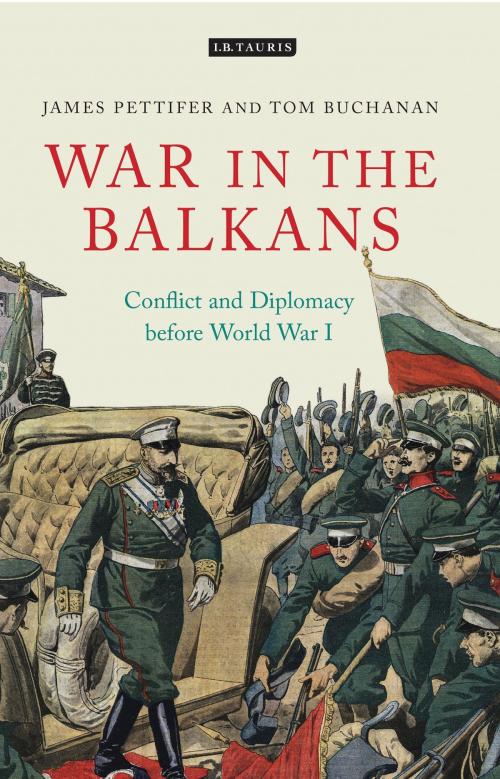War in the Balkans
Conflict and Diplomacy before World War I
Nonfiction, History, Baltic States, Military| Author: | ISBN: | 9780857739681 | |
| Publisher: | Bloomsbury Publishing | Publication: | November 20, 2015 |
| Imprint: | I.B. Tauris | Language: | English |
| Author: | |
| ISBN: | 9780857739681 |
| Publisher: | Bloomsbury Publishing |
| Publication: | November 20, 2015 |
| Imprint: | I.B. Tauris |
| Language: | English |
The history of the Balkans incorporates all the major historical themes of the 20th Century – the rise of nationalism, communism and fascism, state-sponsored genocide and urban warfare. Focusing on the centuries opening decades, War in the Balkans seeks to shed new light on the Balkan Wars through approaching each regional and ethnic conflict as a separate actor, before placing them in a wider context. Although top-down 'Great Powers' historiography is often used to describe the beginnings of the World War I, not enough attention has been paid to the events in the region in the years preceding the Archduke Ferdinand's assassination. The Balkan Wars saw the defeat of the Ottoman Empire, the end of the Bulgarian Kingdom (then one of the most powerful military countries in the region), an unprecedented hardening of Serbian nationalism, the swallowing up of Slovenes, Croats and Slovaks in a larger Balkan entity, and thus set in place the pattern of border realignments which would become familiar for much of the twentieth century
The history of the Balkans incorporates all the major historical themes of the 20th Century – the rise of nationalism, communism and fascism, state-sponsored genocide and urban warfare. Focusing on the centuries opening decades, War in the Balkans seeks to shed new light on the Balkan Wars through approaching each regional and ethnic conflict as a separate actor, before placing them in a wider context. Although top-down 'Great Powers' historiography is often used to describe the beginnings of the World War I, not enough attention has been paid to the events in the region in the years preceding the Archduke Ferdinand's assassination. The Balkan Wars saw the defeat of the Ottoman Empire, the end of the Bulgarian Kingdom (then one of the most powerful military countries in the region), an unprecedented hardening of Serbian nationalism, the swallowing up of Slovenes, Croats and Slovaks in a larger Balkan entity, and thus set in place the pattern of border realignments which would become familiar for much of the twentieth century















